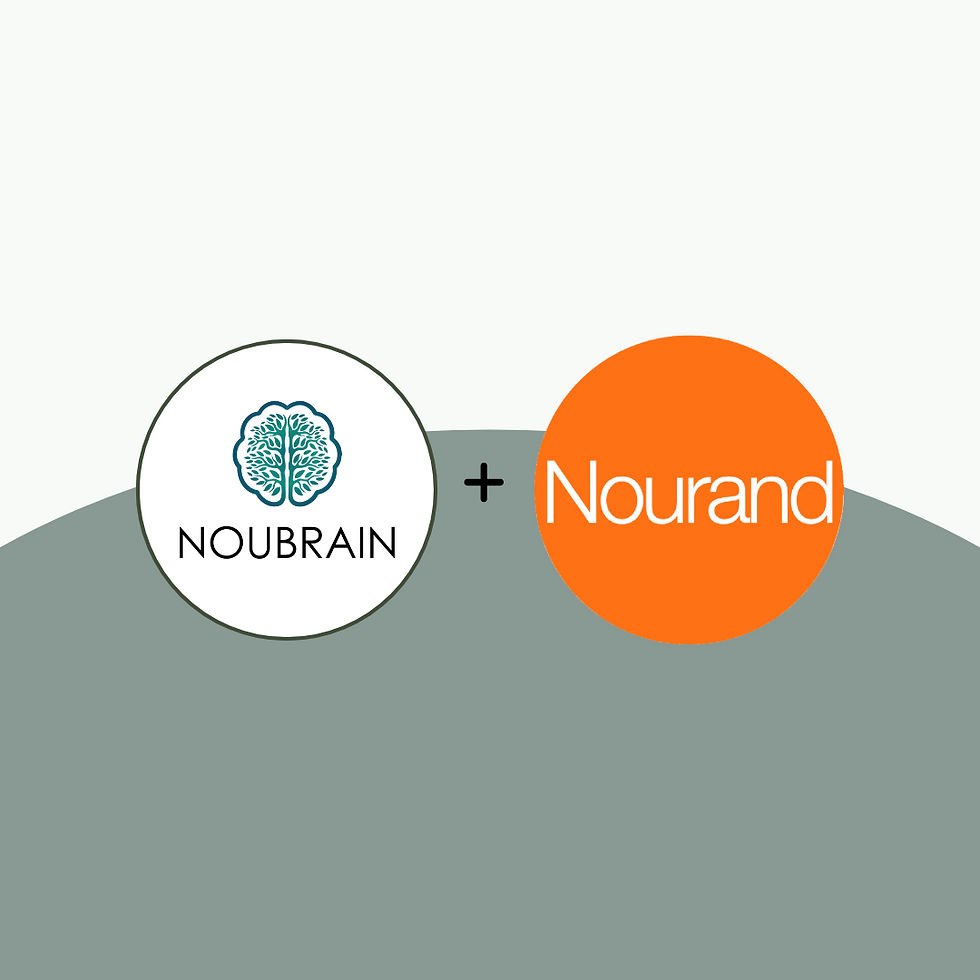Strengthening the Second Brain with Hydroxytyrosol
- Dr. Mireia Sospedra Ramos

- Sep 11
- 4 min read
When we think of the brain, we usually think of concentration, memory, or mental performance. But rarely do we think of the gut. Yet our digestive system plays a far greater role than many realize.

Key Takeaways:
The gut is called our "second brain" because it contains over 500 million neurons
The enteric nervous system can operate independently from the brain
The vagus nerve enables direct communication between gut and brain
Around 90 percent of the body’s serotonin is produced in the gut
The microbiota influences mood, immune response, and cognitive function
Hydroxytyrosol has anti-inflammatory and antioxidant effects that support gut health
It helps maintain the gut-brain connection and promotes emotional balance
What is the microbiota?
There has been a lot of talk about the microbiota recently, but what exactly is it? It is the entirety of all microorganisms such as bacteria, fungi and viruses that colonize our body, especially the intestines. These microorganisms perform important tasks: They help with digestion, support the immune system and even influence our mood. In science, the microbiota is now regarded as the key to health, as it is associated with a wide range of diseases - from allergies and metabolic disorders to depression and neurodegenerative diseases. Researchers see great potential for new approaches in prevention and therapy.
The gut: more than just digestion
Our gut has its own nervous system, known as the enteric nervous system (ENS). With over 500 million neurons, more than the spinal cord, it can control many processes on its own. These include muscle movement, enzyme secretion, and nutrient absorption.
But that’s not all. The gut communicates closely with the brain through the vagus nerve, which sends signals in both directions. This communication network is known as the gut-brain axis.
And it’s not a one-way street. The gut produces around 90 percent of the body’s serotonin, a neurotransmitter that regulates mood. It also produces dopamine and GABA. No wonder we say love goes through the stomach. Our gut feeling plays a major role in whether we feel good, stressed, or calm.
When your second brain influences your thoughts
This close connection means that whatever happens in your gut affects your brain – and vice versa. An imbalanced gut can lead to mood swings, irritability, or chronic stress. On the other hand, emotional stress can also disrupt digestion.
This makes it all the more important to support the gut-brain balance. And that’s where Hydroxytyrosol comes in – a powerful, natural compound from olives.
Hydroxytyrosol - the natural link between gut and brain
Hydroxytyrosol (HYT) is a potent antioxidant found in olives. It is known for its cell-protective, anti-inflammatory, and neuroprotective properties. But it also supports the gut in many ways.
1. Targeting gut inflammation: Chronic low-grade inflammation in the gut is linked to many diseases, including Alzheimer’s and depression. HYT helps reduce inflammation and protect the intestinal lining.
2. Supporting the microbiota: A healthy microbiota needs a stable environment. Oxidative stress can damage gut bacteria. HYT helps neutralize free radicals and maintain microbial diversity.
3. Reducing stress through biochemistry: Stress is one of the biggest disruptors of the gut-brain axis. HYT has calming properties and can help to reduce cortisol levels, a stress hormone that can put a strain on the body and brain if levels are permanently high. Less stress means better digestion and clearer thinking.
A gut- and nerve-friendly diet
Our diet has a direct impact on the microbiota and the health of the nervous system. Certain nutrients can strengthen the gut-brain axis and slow down inflammation:
Fibre and phytochemicals – they nourish the microbiome, promote the formation of short-chain fatty acids and support the production of mood-regulating neurotransmitters such as serotonin.
Omega-3 fatty acids – improve communication between nerve cells, have an anti-inflammatory effect and contribute to better mood and cognitive performance.
Magnesium, B vitamins & zinc – stabilise the nervous system, support neurotransmitter formation and help the body to cope better with stress.
Polyphenols such as hydroxytyrosol – protect the brain and gut from oxidative stress, promote the formation of new nerve cells in the hippocampus and have an anti-inflammatory effect. Studies show that hydroxytyrosol can mitigate cognitive decline in old age and improve stress resistance.
Even small changes in our diet – such as eating more whole grains, vegetables, nuts, fish and olive oil – can help us feel more emotionally balanced, resilient and focused.
Gut and brain - a powerful duo
The gut is much more than a digestive organ. It influences our mood, immunity, and mental clarity. The close link between belly and brain shows us that true health begins in the gut.
Hydroxytyrosol supports this connection by reducing inflammation, protecting the intestinal flora and relieving stress. For greater inner balance, a good gut feeling and a clear head. A balanced diet is particularly important: fibre, omega-3 fatty acids, vitamins and polyphenols from olives, vegetables, nuts and fish provide both the gut and the brain with the building blocks they need to stay in balance. Even small adjustments in everyday life can help to strengthen the gut-brain axis in the long term.
Author
Dr. Mireia Sospedra Ramos holds a PhD in Biological Sciences from the Autonomous University of Barcelona (UAB) and brings over 20 years of research experience in neuroimmunology across Spain, France, the USA, Germany, and Switzerland. With more than 80 scientific publications, her work has advanced the understanding of immune-mediated mechanisms in neurodegenerative diseases. She also holds a Master’s in Scientific, Medical and Environmental Communication (UPF) and a Master’s in Nutrition and Food (UB), combining rigorous science with a commitment to public health education. As founder of Nourand, a scientific partner of Noubrain, and scientific advisor to the Noubrain team, she contributes her expertise to investigating the effects of hydroxytyrosol on brain health.

Dr. Mireia Sospedra Ramos




